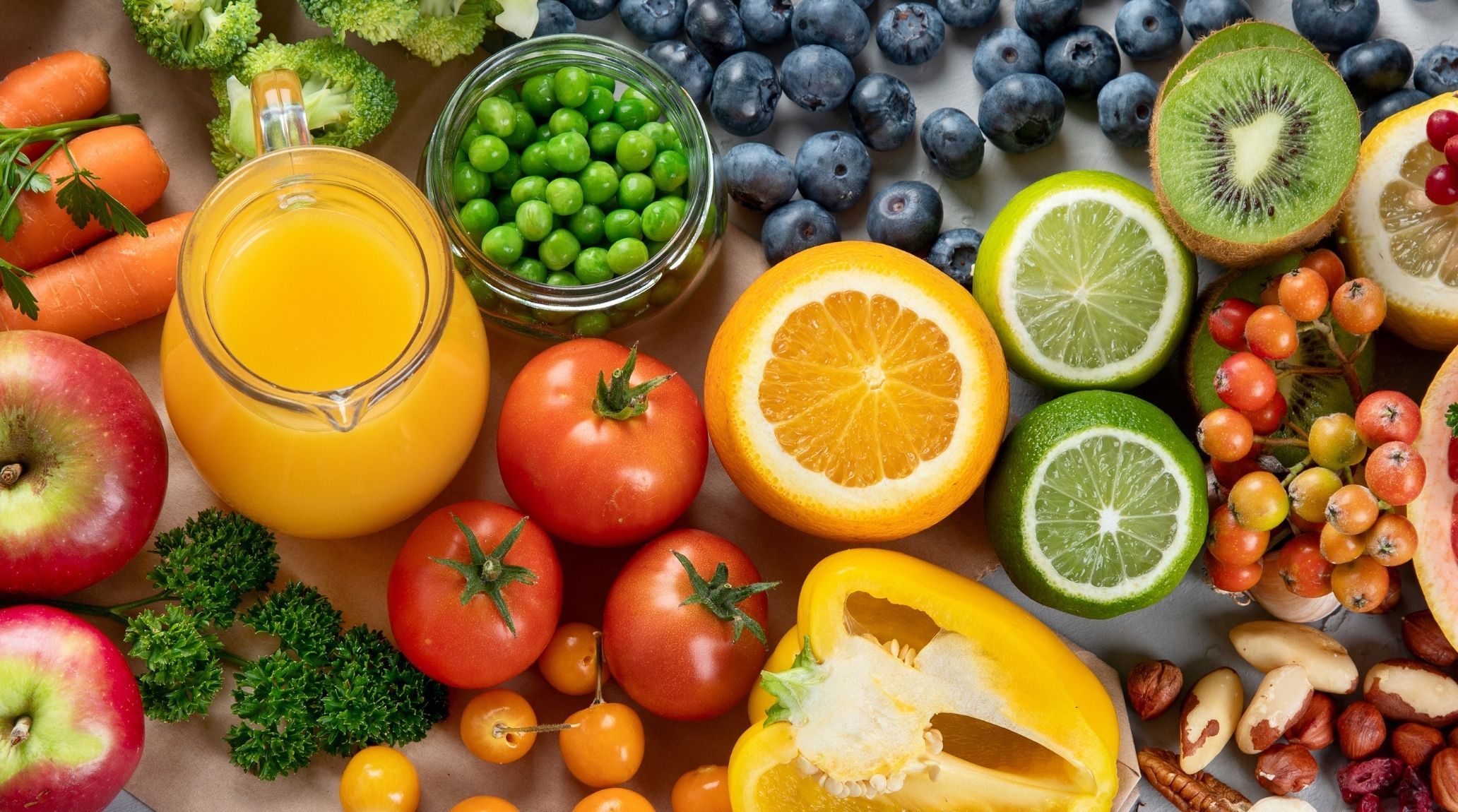
“
Vitamins are essential nutrients that the body needs in small amounts to function properly. They play a crucial role in supporting immune health, maintaining energy levels, and ensuring overall well-being. In this article, we’ll uncover 20 essential facts about vitamins, highlighting their importance, sources, and the best ways to ensure you’re getting the right amount. 1
1
”
Vitamin A supports vision, immune function, and skin health. Rich sources include carrots, sweet potatoes, and liver. Deficiency can lead to night blindness and immune issues. Ensure a balanced diet to prevent such deficiencies. 1

Vitamin C is vital for immune health, collagen production, and antioxidant protection. Citrus fruits, bell peppers, and strawberries are excellent sources. A deficiency may lead to scurvy, causing gum disease and fatigue.
Vitamin D helps absorb calcium for strong bones and teeth. It is found in fatty fish like salmon and fortified dairy products, and is also produced by the skin when exposed to sunlight. Deficiency can cause rickets in children and osteoporosis in adults.2
Vitamin E acts as a powerful antioxidant, protecting cells from damage. Good sources include almonds, sunflower seeds, and spinach. A deficiency is rare but may lead to nerve and muscle damage, affecting movement and vision. 3
Vitamin K is crucial for blood clotting and bone health. Leafy greens like kale, spinach, and broccoli are top sources. Deficiency can cause excessive bleeding and weakened bones, making it essential to include these foods in your diet. 4
Thiamine is important for energy production and nervous system function. Whole grains, pork, and legumes are rich sources. A deficiency, known as beriberi, can lead to fatigue, nerve damage, and heart issues. 5
Riboflavin supports energy production and helps maintain healthy skin and eyes. Dairy products, eggs, and lean meats provide ample riboflavin. Deficiency can cause skin disorders, mouth sores, and eye problems. 6

Niacin is essential for metabolism and DNA repair. It’s found in chicken, turkey, and peanuts. A deficiency can lead to pellagra, characterized by diarrhea, dermatitis, and dementia, making niacin-rich foods crucial for health.
Pantothenic acid is important for synthesizing coenzymes that aid in energy metabolism. Found in avocados, eggs, and whole grains, it is widely available in food. Deficiency is rare but can cause fatigue and digestive issues. 7
Vitamin B6 helps in the production of neurotransmitters and red blood cells. Bananas, chickpeas, and fish are excellent sources. Deficiency may lead to anemia, depression, and confusion, highlighting the importance of B6 in brain and blood health. 8
Biotin is key for healthy skin, hair, and nails, and also supports metabolism. Eggs, nuts, and seeds are rich in biotin. A deficiency can cause hair loss, skin rashes, and brittle nails, though it’s uncommon due to its presence in many foods. 9
Folate is essential for DNA synthesis and cell division, making it crucial during pregnancy. Leafy greens, beans, and fortified cereals are good sources. Deficiency can lead to neural tube defects in newborns and anemia in adults. 10
Vitamin B12 supports nerve function and red blood cell formation. Found in meat, fish, dairy, and fortified cereals, it is mainly available from animal sources. Deficiency can cause fatigue, nerve damage, and anemia, particularly in vegans. 11
Vitamin K2 plays a role in bone and heart health, directing calcium to bones rather than arteries. It’s found in fermented foods like natto and animal products like cheese and egg yolks. Deficiency may increase the risk of osteoporosis and heart disease. 12
Choline is crucial for liver function, brain development, and muscle movement. Eggs, liver, and peanuts are top sources. A deficiency can lead to liver disease and cognitive impairment, especially during pregnancy. 13
Vitamin E, found in nuts, seeds, and green leafy vegetables, supports immune function and skin health. A deficiency is rare but may result in nerve problems and weakened muscles due to its role in protecting cells from oxidative damage. 14
Vitamin D3, synthesized from sunlight exposure, helps maintain calcium levels and bone density. It’s also found in fatty fish and fortified foods. Deficiency can lead to bone weakness and an increased risk of fractures. 15
Beta-carotene, a precursor to vitamin A, is found in colorful vegetables like carrots, pumpkins, and spinach. It supports healthy vision and immune function, and deficiency can cause dry skin, vision problems, and lowered immunity. 16
Riboflavin is found in dairy products, lean meats, and eggs. It plays a key role in energy production and skin health. Deficiency may cause sore throat, redness of the tongue, and skin disorders. 17
Folic acid, essential for DNA repair and red blood cell production, is abundant in leafy greens, beans, and fortified cereals. Deficiency during pregnancy can lead to birth defects, while in adults, it may cause fatigue and anemia. 18


